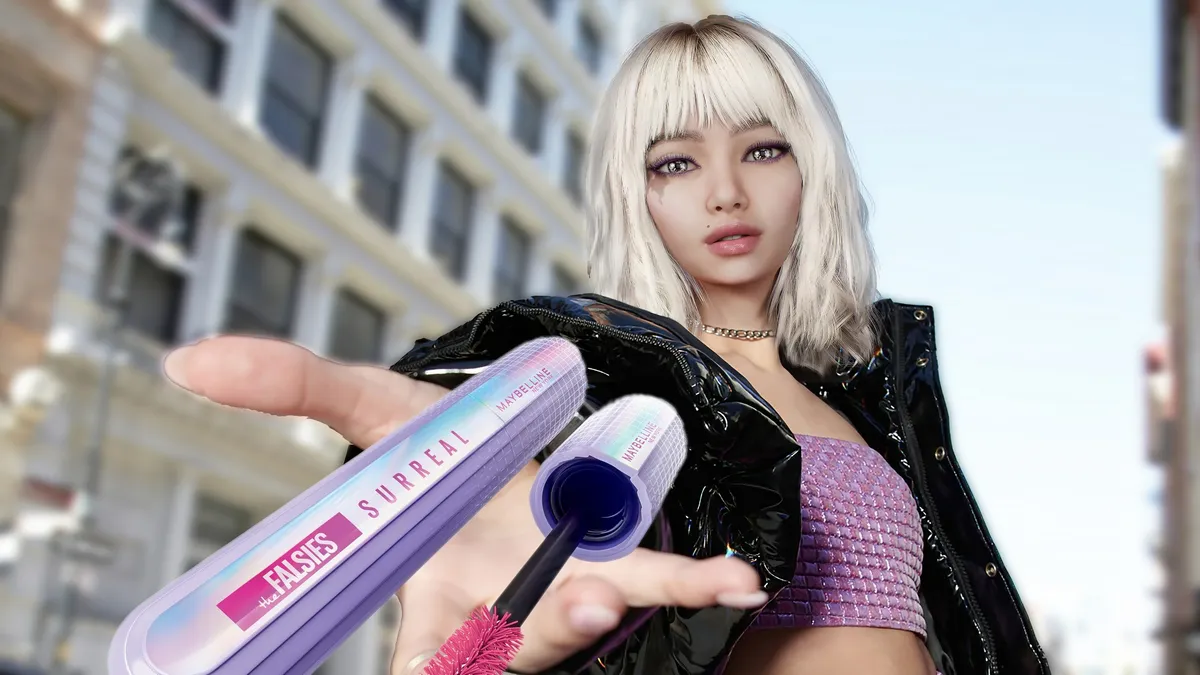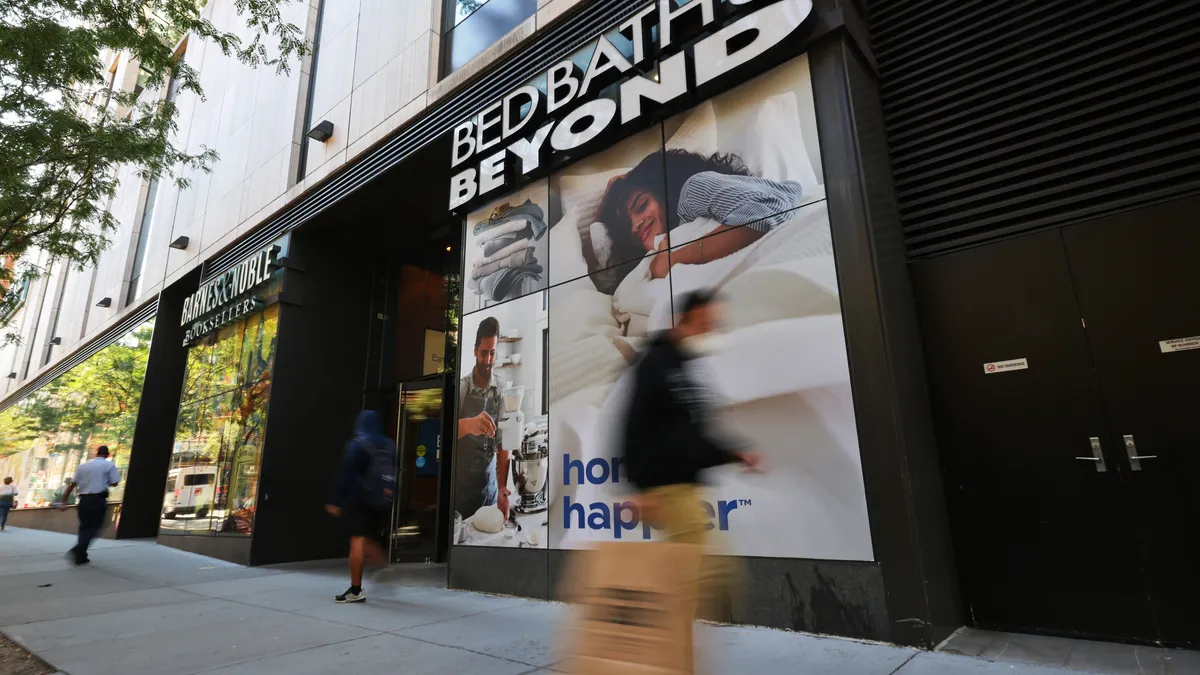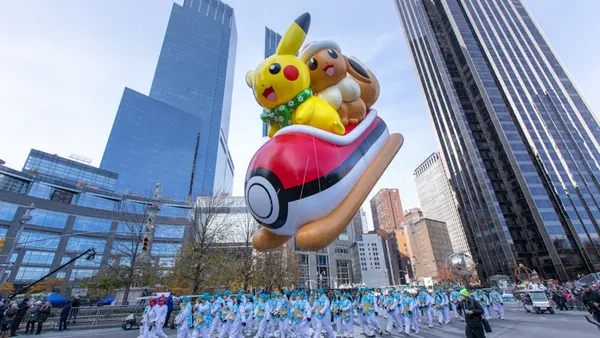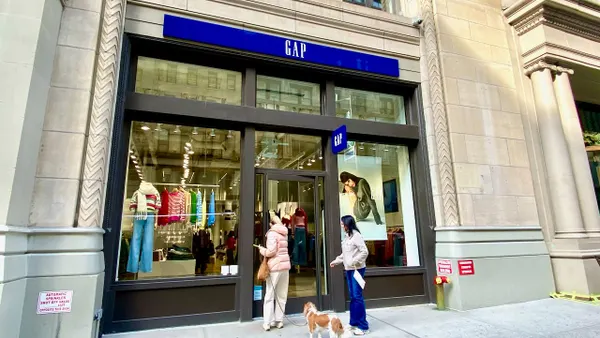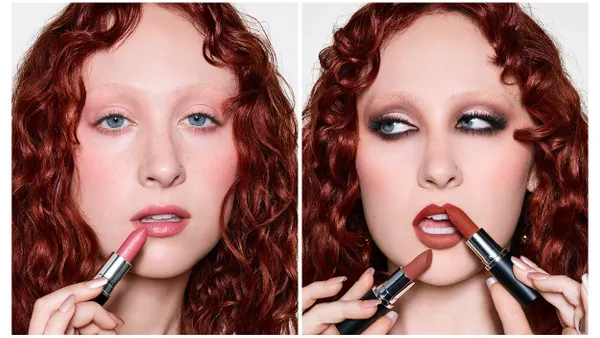Dive Brief:
- L'Oréal’s Maybelline New York is enlisting its first-ever digital avatar, named May, for a campaign surrounding the launch of its new Falsies Surreal Extensions Mascara, according to a press release.
- The forthcoming effort, which also includes a tie-up with model and global ambassador Gigi Hadid, will include both real world and virtual elements. The avatar will also assist with future campaigns, virtual product and service releases and other metaverse-related activations.
- The move to activate with a digital avatar follows a growing interest in virtual influencers by both advertisers and consumers and rides on the heels of other innovative marketing efforts by Maybelline, including efforts surrounding the metaverse.
Dive Insight:
As influencers increasingly command a larger share of the digital marketing landscape — and advertiser budgets — virtual counterparts have gradually risen to the surface as a more cost effective alternative, despite lacking the human element many consumers desire from brand ambassadors. Still, the computer generated talent trend has proven to have legs. Fifty-eight percent of people follow at least one virtual influencer, according to The Influencer Marketing Factory, and 35% have purchased something promoted by one.
Maybelline’s digital avatar, May, will not only help with the rollout of the beauty retailer’s latest mascara, but will also assist in future efforts, including campaigns with other makeup franchises under its umbrella, per the release. Such a widespread activation offers the brand a unique opportunity for control in a space that is often unpredictable, with some influencer partnerships taking a negative turn due to controversy.
Recently, parent company L'Oréal itself fell victim to a troubled influencer tie-up. In what has since been coined “LashGate,” beauty influencer Mikayla Nogueira last month was accused of wearing false lashes in a TikTok post promoting the brand’s Telescopic Lift mascara, though the star repeatedly denied the claims. Maybelline seemed to poke fun at the dilemma in the release introducing May, noting that its new mascara’s technology is so impressive that only an avatar could bring it to life, and the product will prompt people to ask, “are your lashes real?” While the positive spin on an otherwise negative experience could help the company gain back some credibility, virtual influencers still pose unique challenges for marketers.
Maybelline is joined by several other marketers who have shown interest in the digital avatar realm. For example, Pacsun last year partnered with popular computer-generated influencer Miquela for its back-to-school and holiday efforts. On the agency side, Dentsu’s creative network launched Dentsu VI to provide brands with a virtual face and personality.
The beauty retailer’s latest move follows other innovative marketing strategies as of late, which primarily see the brand narrowing its focus on Gen Z and millennial consumers. Last year, the brand partnered with cross-game avatar platform Ready Player Me for a metaverse activation, which entailed creating makeup looks for application to virtual avatars. Last August, Maybelline also partnered with video game developer Zynga to launch an in-game playable ad, “Maybelline Mascara Merge.”



